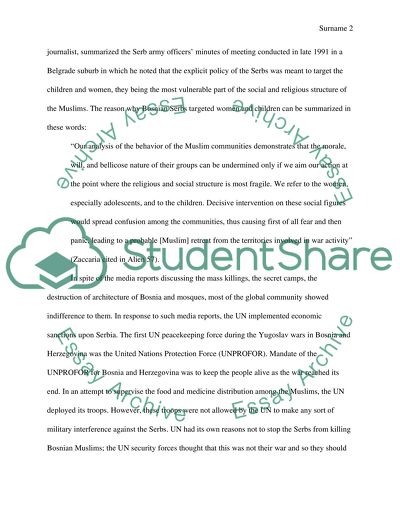Cite this document
(“Genocidal rape in Bosnia-Herzgovina Research Paper”, n.d.)
Genocidal rape in Bosnia-Herzgovina Research Paper. Retrieved from https://studentshare.org/journalism-communication/1487134-genocidal-rape-in-bosnia-herzgovina
Genocidal rape in Bosnia-Herzgovina Research Paper. Retrieved from https://studentshare.org/journalism-communication/1487134-genocidal-rape-in-bosnia-herzgovina
(Genocidal Rape in Bosnia-Herzgovina Research Paper)
Genocidal Rape in Bosnia-Herzgovina Research Paper. https://studentshare.org/journalism-communication/1487134-genocidal-rape-in-bosnia-herzgovina.
Genocidal Rape in Bosnia-Herzgovina Research Paper. https://studentshare.org/journalism-communication/1487134-genocidal-rape-in-bosnia-herzgovina.
“Genocidal Rape in Bosnia-Herzgovina Research Paper”, n.d. https://studentshare.org/journalism-communication/1487134-genocidal-rape-in-bosnia-herzgovina.


